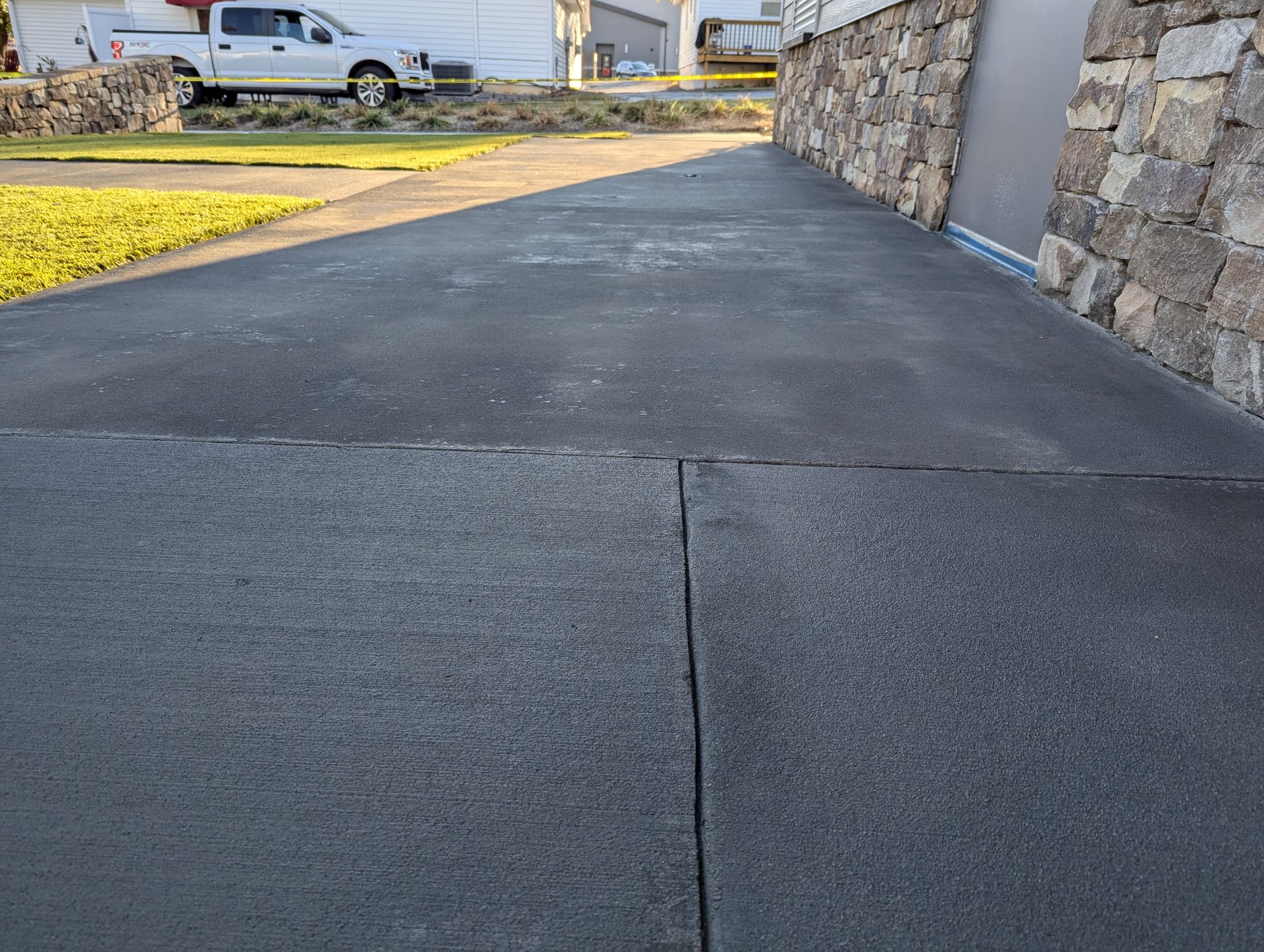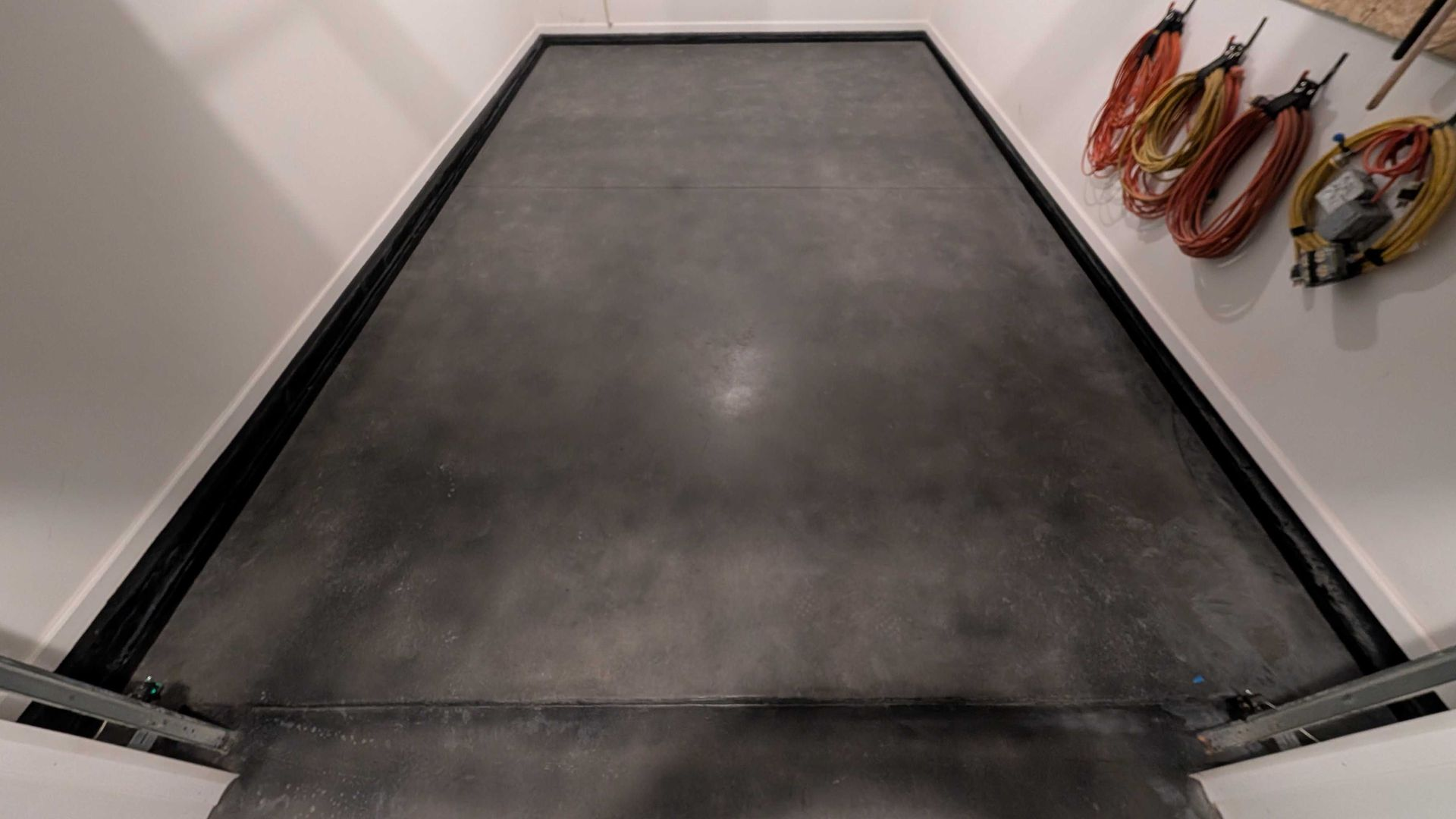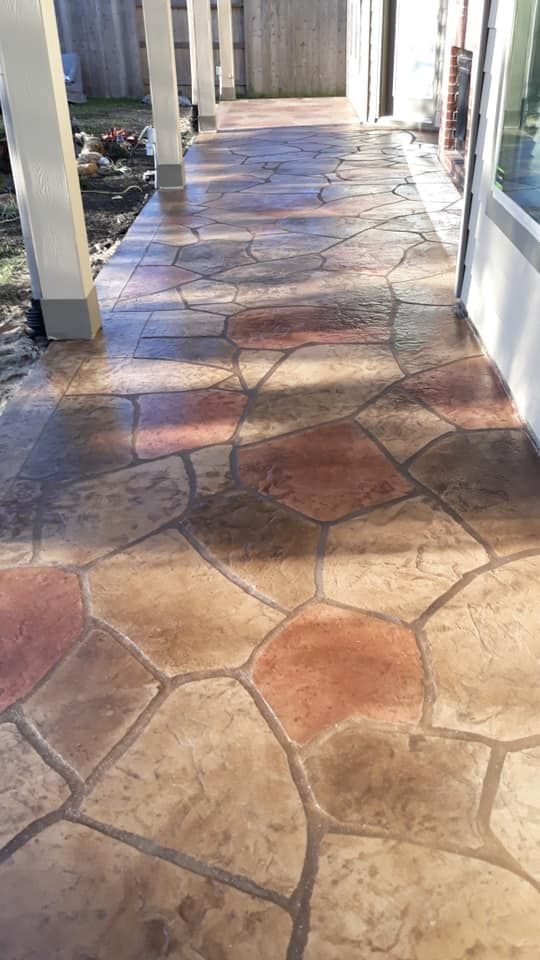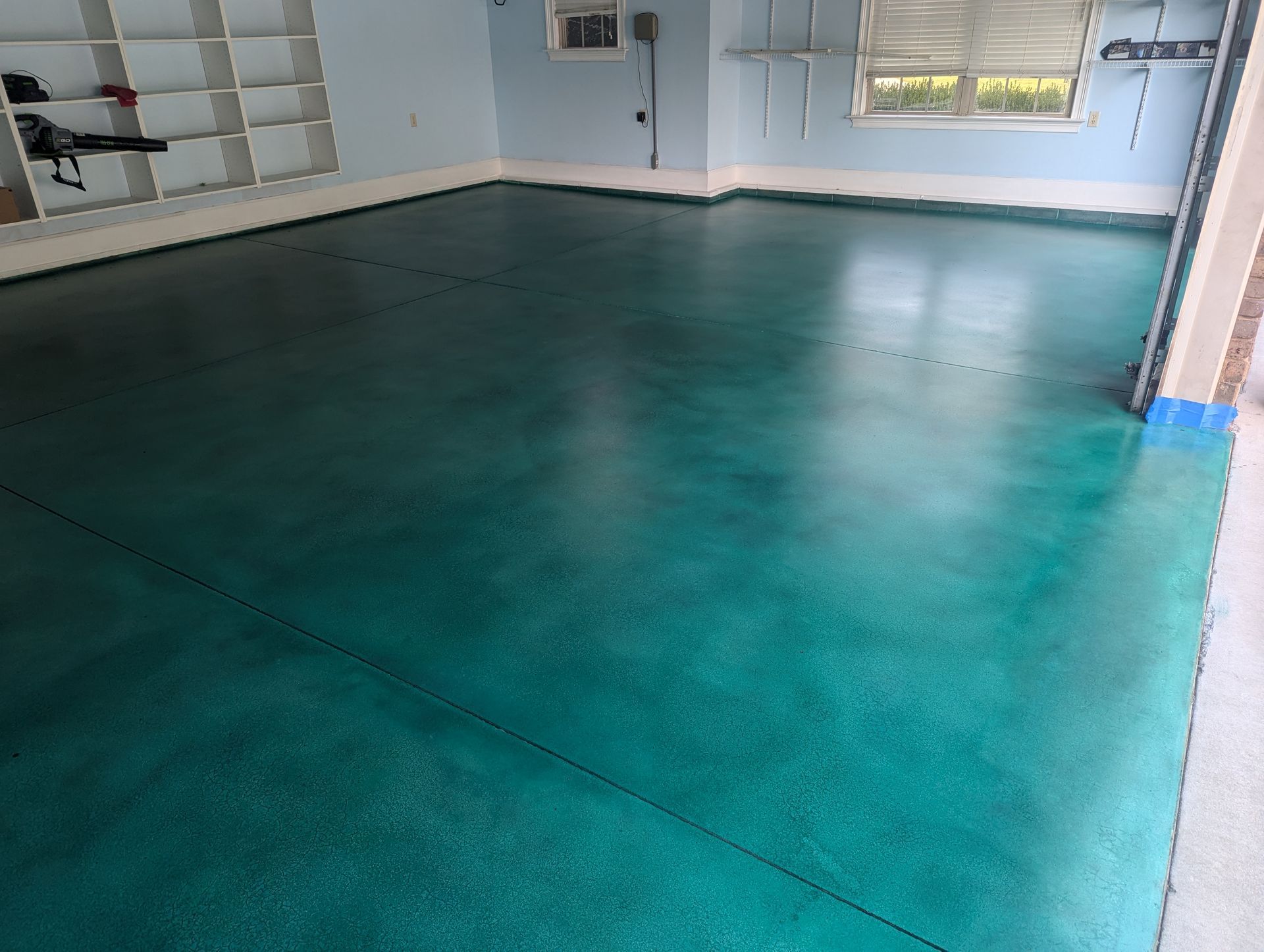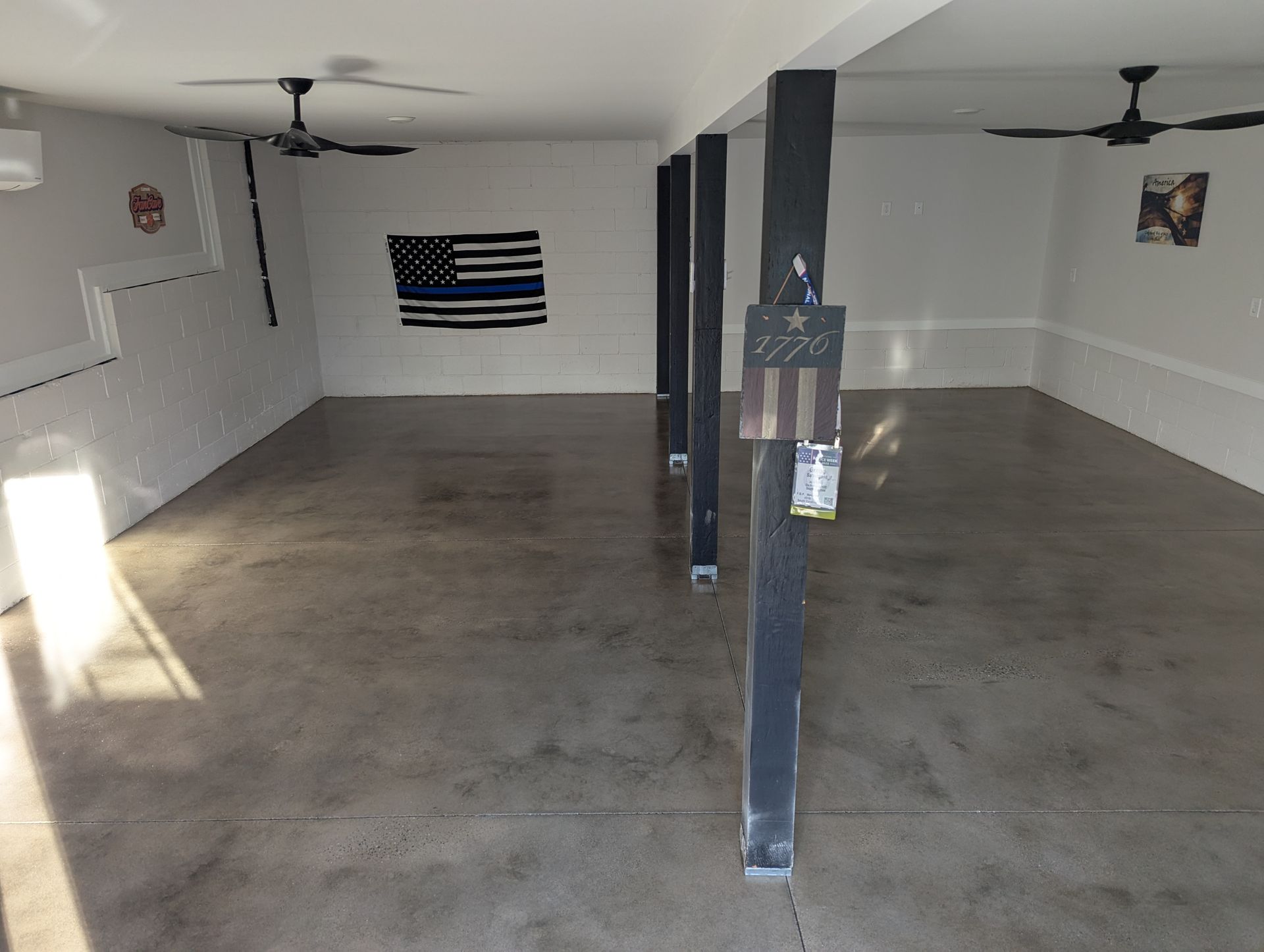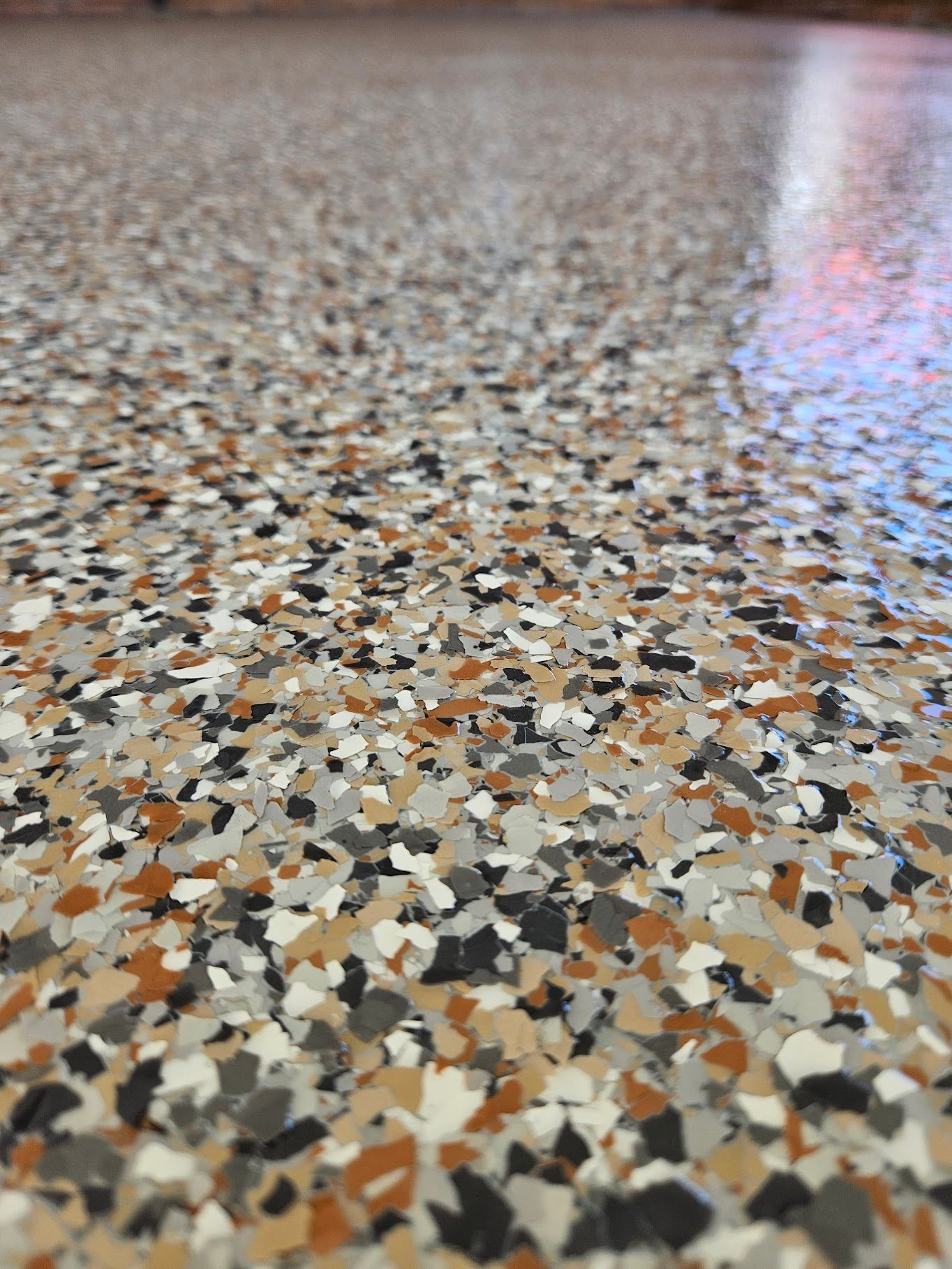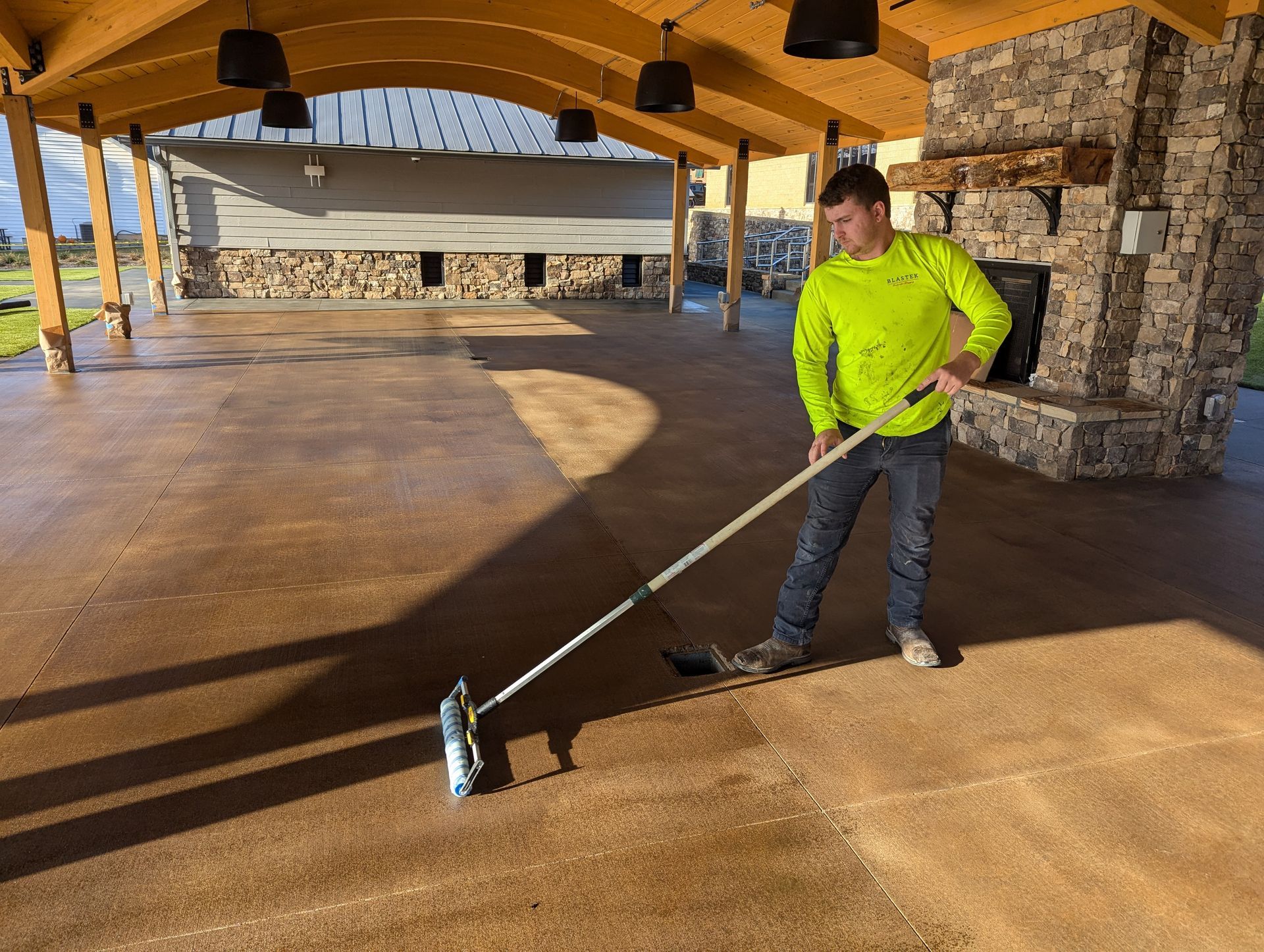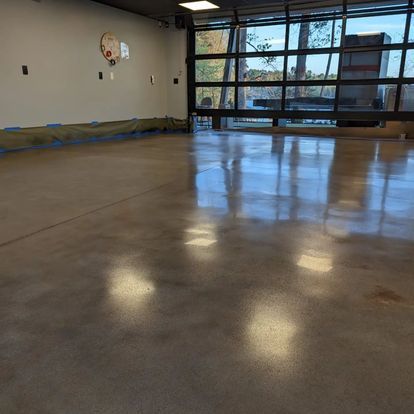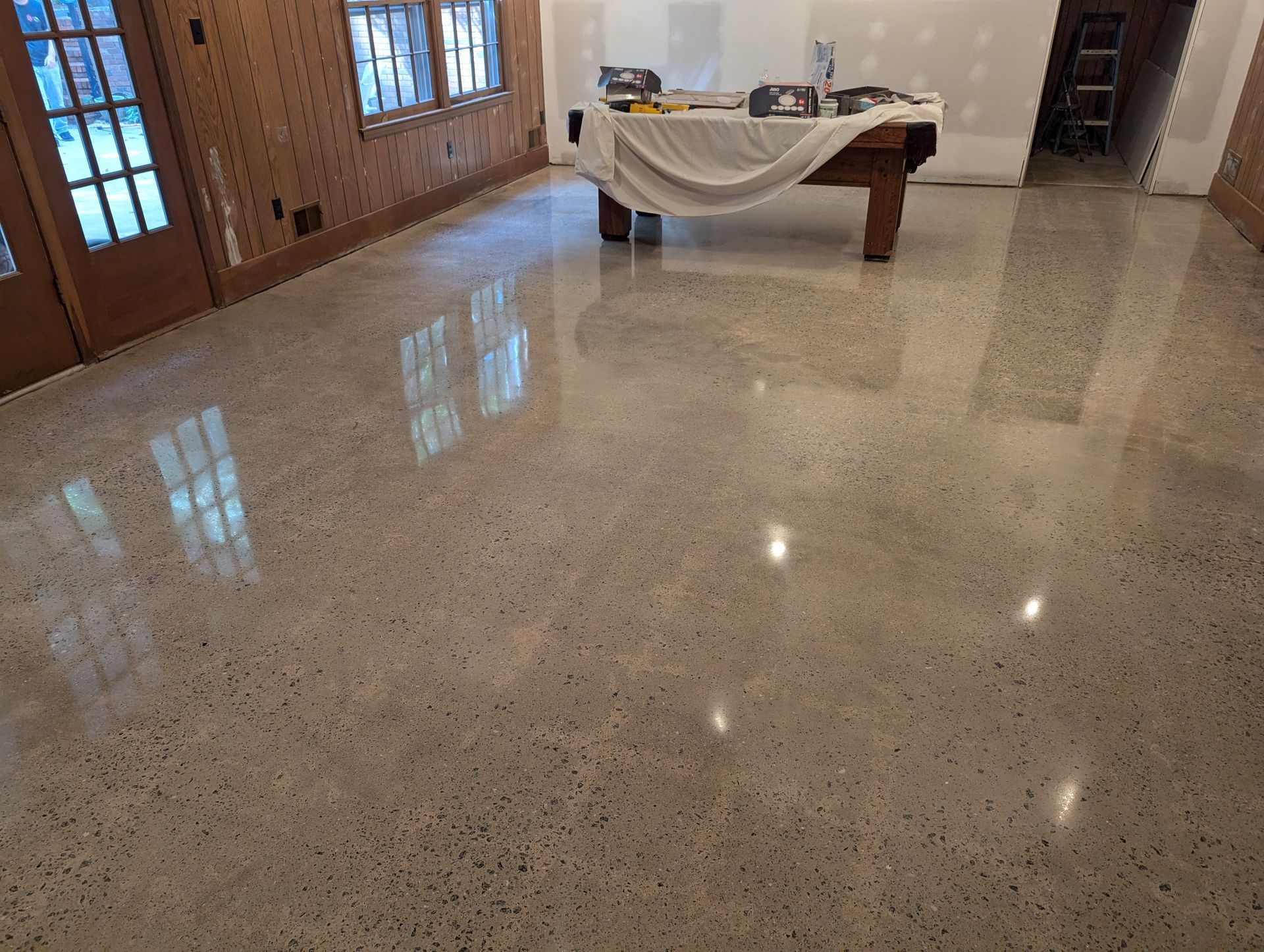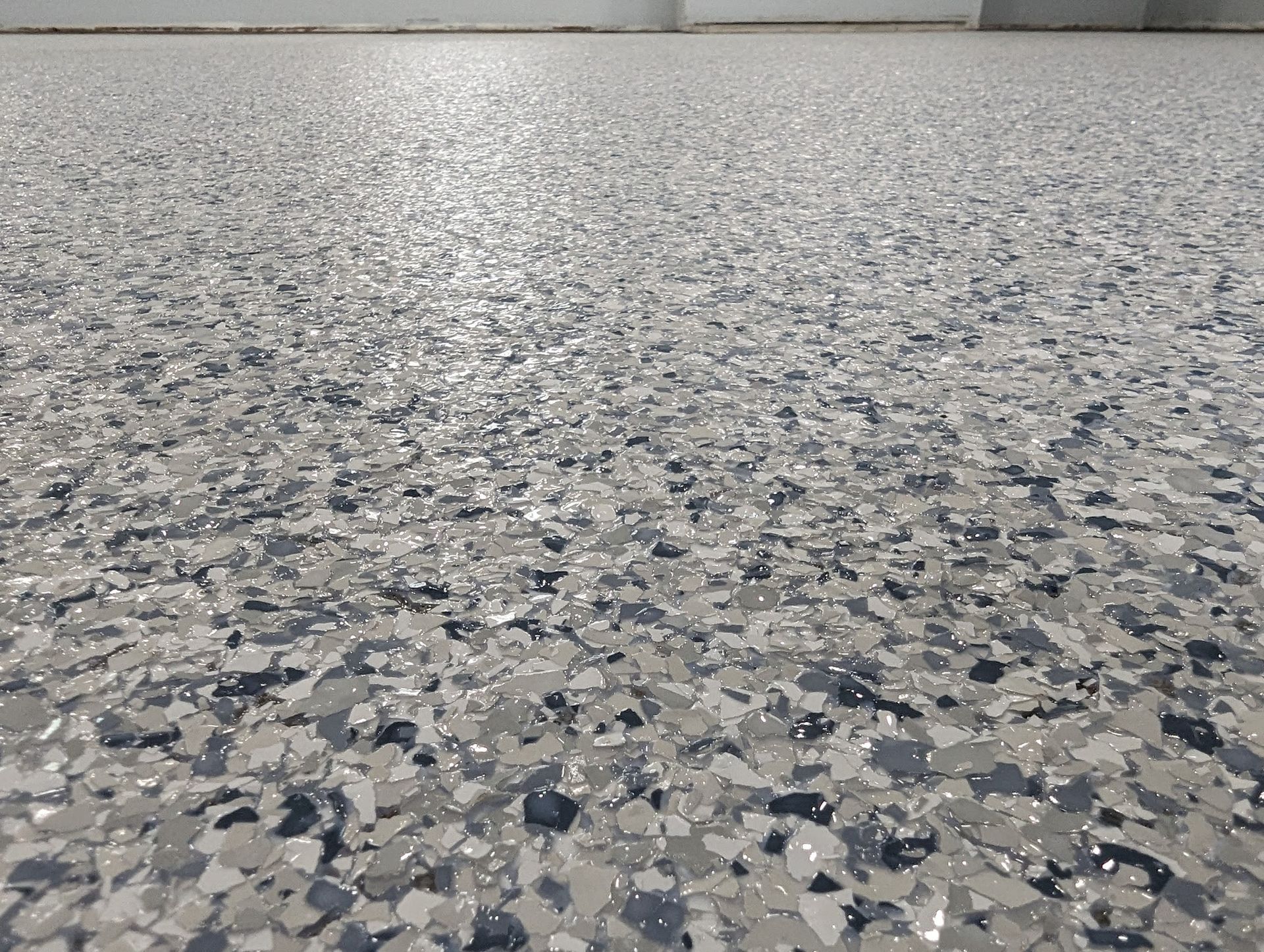Is Your Spartanburg Basement Damp? Here's Why Concrete Polishing Might Fix It
Basement moisture is a common problem in Spartanburg homes. Whether it shows up as surface dampness, musty odors, or visible mold, the root cause often comes down to the concrete itself. Unsealed or porous basement floors allow moisture to rise through the slab, leading to long-term issues.
One proven way to
address this problem is through
concrete polishing. While typically seen as an aesthetic upgrade, polished concrete also plays a functional role in improving basement conditions by reducing moisture intrusion and enhancing durability. This post explores how concrete polishing works and why it could be the right fix for your damp basement.
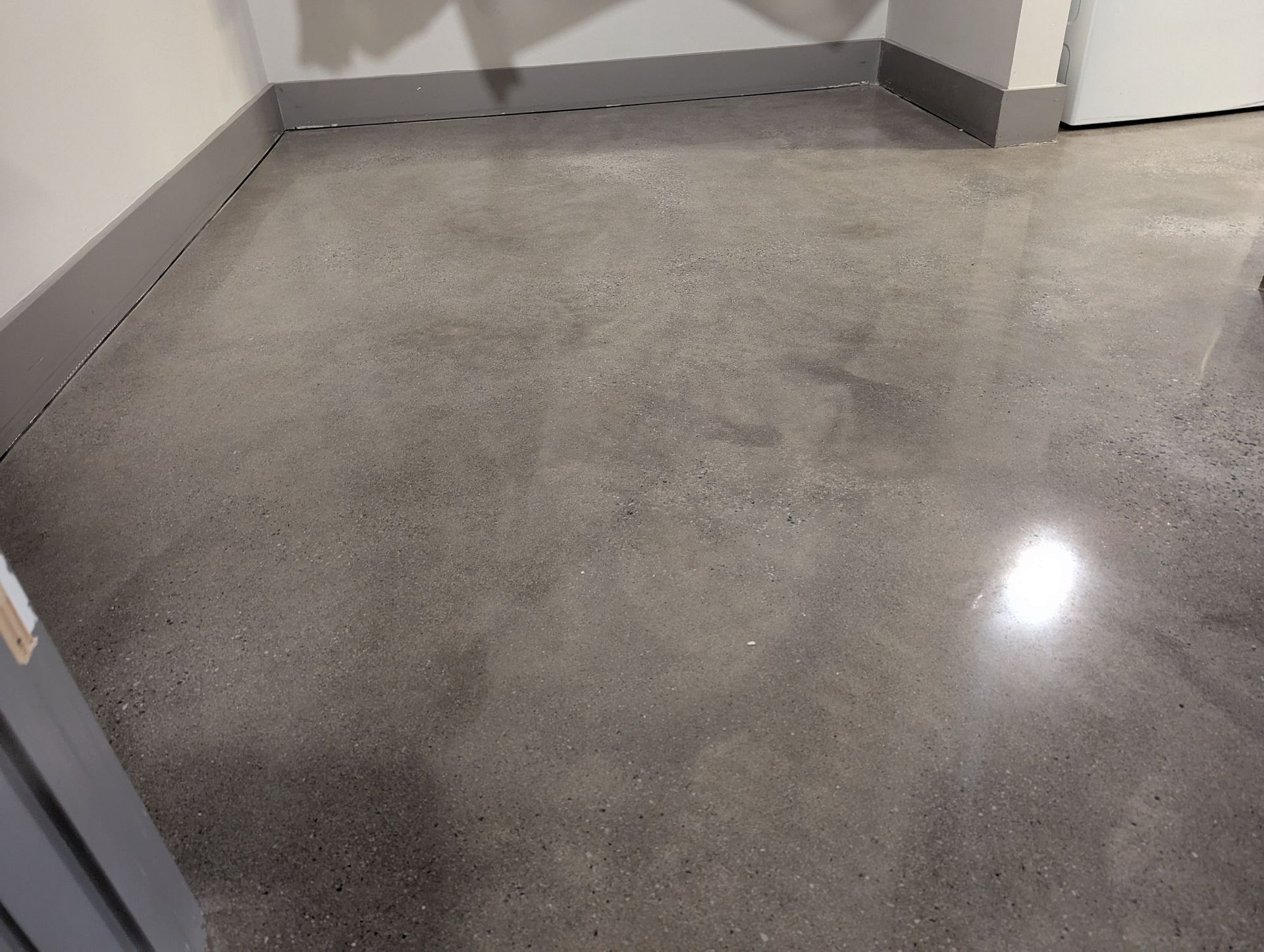
What Causes Moisture in Spartanburg Basements?
Basement dampness in Spartanburg is primarily caused by two factors: South Carolina’s humid climate and poorly treated concrete floors. Concrete is naturally porous, meaning water vapor from the soil can travel through the slab and into the home.
Common Causes of Dampness:
- Hydrostatic pressure: Water from surrounding soil pushes against basement walls and floors.
- Capillary action: Moisture moves through tiny pores in unsealed concrete slabs.
- Condensation: Warm, humid air hits cool concrete surfaces, forming water droplets.
- Cracks and gaps: Unsealed cracks allow moisture to enter more easily.
If the concrete floor is untreated or coated with low-grade sealers, the problem only gets worse over time.
How Concrete Polishing Helps With Moisture Management
Polished concrete floors go through a mechanical grinding and densification process that closes the surface and minimizes porosity. While polishing is not a waterproofing method, it significantly reduces the rate of moisture transmission through the slab when compared to untreated concrete.
Key Benefits for Damp Basements:
- Densification reduces absorption: Polishing includes applying a chemical densifier that reacts with the concrete to fill pores and capillaries.
- Smooth finish limits vapor transmission: The refined surface limits the ability of moisture to wick upward into the room.
- Easier to keep dry and clean: A polished basement floor doesn’t trap moisture, dust, or allergens like carpet or tile grout.
While it won't fix underlying drainage or structural issues, polished concrete can be an effective part of a larger moisture control strategy—especially when paired with vapor barriers or dehumidifiers.
How Polished Concrete Compares to Other Basement Flooring Options
When selecting flooring for a basement with moisture concerns, it's important to avoid materials that trap water or degrade quickly. Here's how polished concrete stacks up:
| Flooring Type | Moisture Resistance | Lifespan | Maintenance |
|---|---|---|---|
| Polished Concrete | High (if slab is dry) | 20+ years | Low |
| Epoxy Coating | Moderate (can peel over time) | 5–10 years | Medium |
| Laminate/Engineered Wood | Low | 5–10 years | High |
| Carpet | Very Low | 3–5 years | High |
| Vinyl Plank | Moderate | 10–15 years | Medium |
Polished concrete stands out for being low maintenance, long lasting, and resistant to mold and mildew, provided the slab is dry and structurally sound before polishing.
Important Considerations Before Polishing Your Basement Floor
Polishing concrete is only effective if the slab is in good condition. Homes with significant water intrusion or hydrostatic pressure may need to address those issues first.
Pre-Polishing Checklist:
- Check for active water leaks. Fix any drainage issues before considering polishing.
- Test moisture levels. Use a calcium chloride test or RH probe to measure moisture vapor emission.
- Patch cracks and damage. Surface repairs may be needed to ensure an even polish.
- Consider adding a vapor barrier. If you're unsure about sub-slab moisture, a moisture barrier can offer extra protection.
Consult with a professional concrete polishing contractor to assess your slab’s condition and determine if polishing is the right choice for your basement.
Why Spartanburg Homeowners Are Choosing Concrete Polishing
More homeowners in Spartanburg are turning to polished concrete for their basements, not just for the clean, modern look—but for its performance in humid conditions. With proper installation and care, a polished concrete basement floor can:
- Help reduce mold risks
- Resist staining and wear
- Reflect light for a brighter space
- Lower long-term maintenance costs
It’s a practical solution for damp environments, especially when combined with good ventilation and humidity control.
Conclusion: A Cleaner, Drier Basement Starts With the Floor
Damp basements are more than just a nuisance—they can damage belongings, create health hazards, and reduce home value. Concrete polishing offers a practical way to combat moisture from the ground up. While it's not a cure-all, it’s a solid step toward a cleaner, safer space.
If you're considering polished concrete for your Spartanburg basement,
Blastek Concrete Designs can help you assess your flooring and recommend the right approach. Their team brings years of experience in moisture-sensitive flooring upgrades that last.
FAQ
Can concrete polishing fix basement leaks?
No. Polishing helps reduce moisture vapor transmission but won’t stop active leaks. Drainage and sealing issues must be resolved first.
Is polished concrete mold-resistant?
Yes. Since the surface doesn’t trap moisture and is easy to clean, it helps prevent mold and mildew growth.
Do I still need a vapor barrier with polished concrete?
If your basement has moderate to high sub-slab moisture, a vapor barrier is recommended before polishing for added protection.
How long does a polished basement floor last?
With proper maintenance, polished concrete floors can last over 20 years, even in high-moisture environments.
Is concrete polishing expensive for basements?
It’s competitively priced at $3–$8 per square foot, depending on slab condition, finish level, and prep work required.

